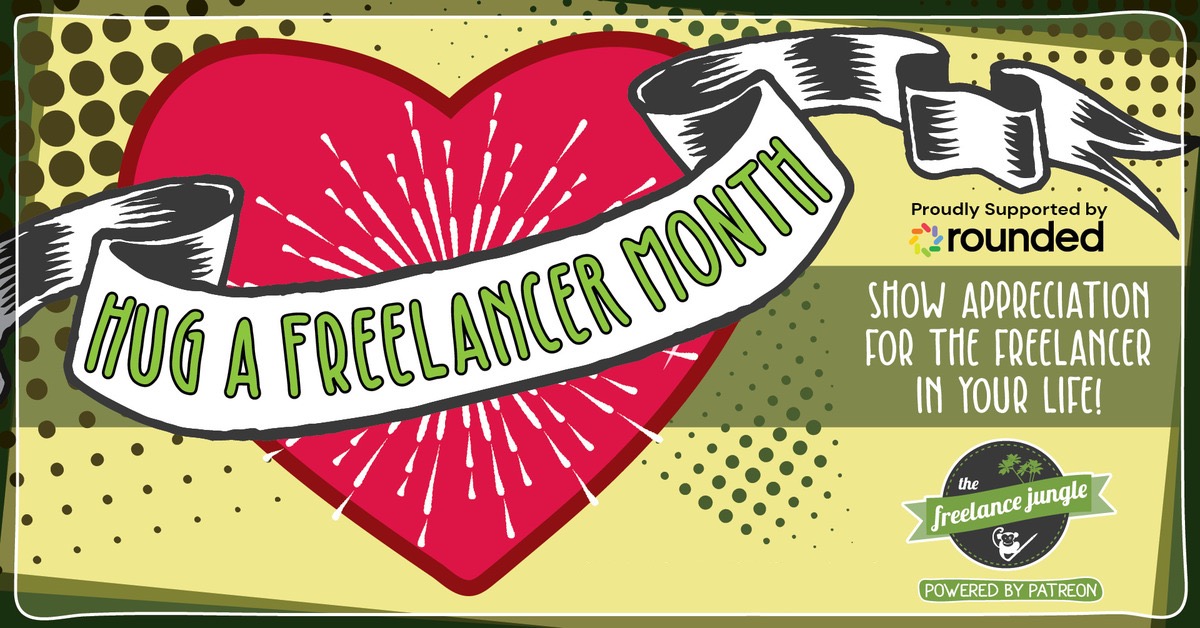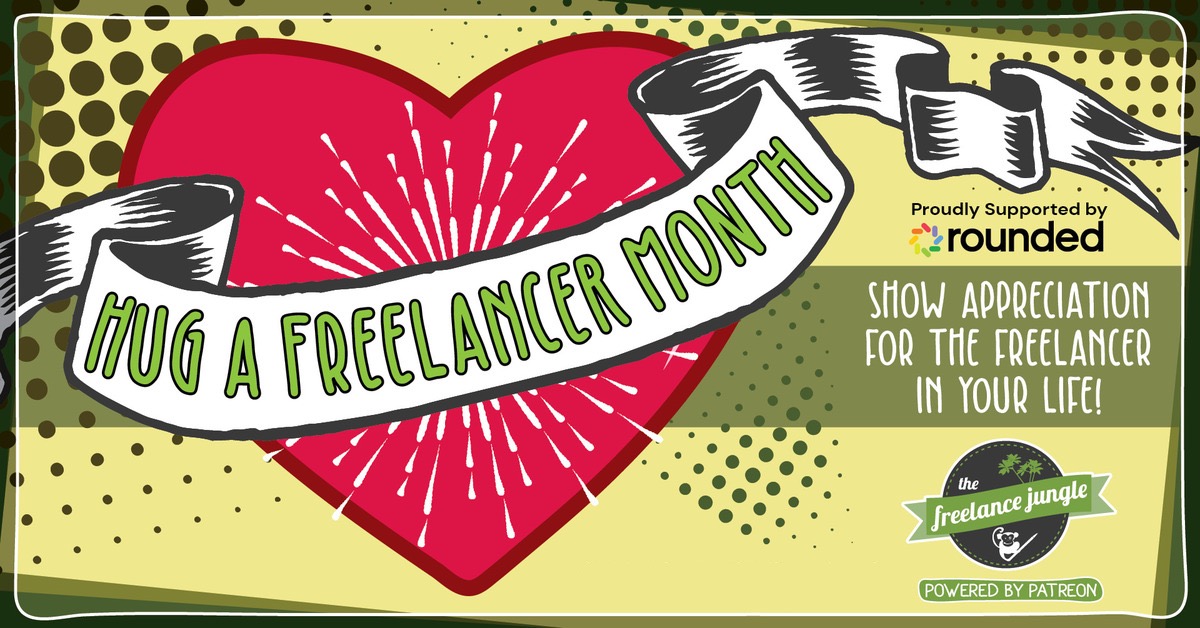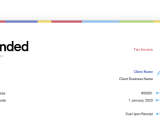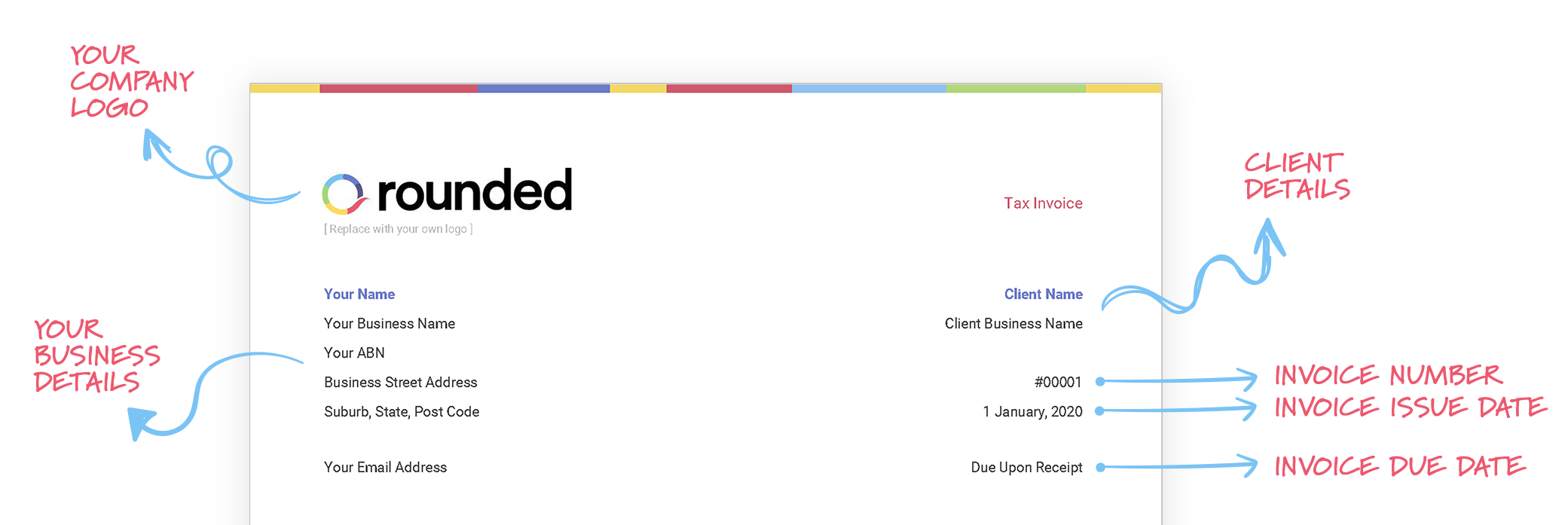
How to create rapport with your clients
Want to win long-term contracts and get more word-of-mouth referrals to your freelance business? The key to success may be building rapport with clients, according to Rebekah Lambert of Freelance Jungle.
Article contents
− +
This article was authored by Rebekah Lambert, founder of Freelance Jungle, as part of the first-ever Hug a Freelancer Month. Rounded has partnered with Freelance Jungle to bring you new content about self-care and client relationships, like this article, along with workshops, events, and even prizes.

There’s nothing quite so giddy-making as having a great rapport with a client. To work together effectively, pitch ideas, and make the project the best it can be, good rapport is essential.
But building rapport with a client isn’t an automatic process. You and the client might have to try a few different approaches and get to know each other well before the magic happens. It requires consistency, effort, and focus, as well as empathy.
Here are some tips on how to create rapport with clients – and some tips on what to do if things come unglued along the way.
Communicate well and often
Communication is key to building a strong rapport with your clients. Make sure you are clear, concise, and prompt in your communication. Keep them updated on the progress of their project, and respond to their messages and emails in a timely manner.
Remember, left in the dark, clients may begin to fear the worst about their relationship with you. By communicating well and often, you can avoid misunderstandings, build trust, and show your clients that you value their time and investment.
General communication tips
If you find yourself out of sync with the client, book a video meeting or pick up the phone. Email can sometimes give us a misreading of what a client is thinking, and you want to eliminate this as the cause of friction. Plus, even if they are unhappy, speaking to them turns you back into a human in their eyes, instead of a problem somewhere behind a screen.
Aim for the magic five-line email. Long winded comms can be too much to digest or think about. Too little and you may come off curt or snappy.
Never use a triple bunger excuse – even if it’s true! The more you try to explain away something, the more it will create suspicion. A triple bunger excuse is usually a sign you’re making sure you’ve put on triple strength pants to protect your butt.
Talk to clients about more than the work
You don’t have to be BFFs with your clients, but it helps to take the time to get to know them beyond the work you do together.
You can easily build a personal (yet professional) relationship with clients by taking a few moments at the start of an email or on a Zoom call to ask them how they are, what’s new in their life, or to comment on mutual interests.
Pay attention to what your clients say—remembering details from previous conversations shows the client you care and makes your personal bond even stronger.
Personal communication tips:
Avoid stumbling over tired greetings. For example, “How are you?” is tired and never gets an honest answer. Something like “What’s been happening today?” creates the chance to answer something different while also adding a moment of mindfulness by focusing on the present.
Open-ended questions are your friends. For example, “How did you start working with <company>?” or “X field is fascinating. How did you get into it?” demonstrates your interest in your clients while also getting more information about their motivations and drives.
Setting boundaries with clients
Do you know why the velvet rope at the front of a club seems appealing, even if people have to line up for ages to get in?
Boundaries build anticipation and make us work for things. To get through those lines of engagement, we have to commit to certain expectations and behaviours.
All humans need guidance on what is and isn’t appropriate. If you put up with a client running you ragged and then get resentful because they continue to do so, it’s not only the client that’s at fault.
Make sure you set clear boundaries around working hours, communication methods, and payment terms. Stick to them and enforce them if necessary. This can help to establish a sense of professionalism and respect.

Tips for communicating boundaries:
Be OK with challenging a decision or behaviour in a polite but professional way. Here are some example phrases you might use:
“I am here to help, but please don’t speak to me like that.”
“We need to revisit the project scope, because with the recent requests, I think we’re in danger of losing focus.”
“I am happy to help – on Wednesday. Right now though, I am completing work for other clients.”
Shake off assumptions about your clients
Every client has the right to a clean slate. But the problem is, the more we encounter high-touch or high-maintenance clients, the more we believe all clients are problems. And that belief can impede building rapport with new clients, because our assumptions make us guarded.
If we expect bad client behaviour, we’re less open to the client in front of us. We’re probably also more likely to be cynical and unforgiving when our clients make a behaviour-based mistake.
Dealing with assumptions about clients means:
Doing what you can to weed out problematic clients before you work with them, like solid onboarding processes, non-negotiable payment terms, and watching out for red flags.
“Shaking off” the last problematic client properly. Don’t allow the watermarks and fingerprints left by problematic clients to shape how you operate. Reflect on poor client experiences by:
Running an autopsy of the project or client engagement to figure out what went haywire
Clearing out the emotional baggage by writing out your feelings and emotions
Closing off the stress cycle with self-compassion and forgiving yourself for mistakes you made or red flags you missed
Creating an action plan to avoid or manage difficult situations next time. This might include updating your terms and conditions, implementing boundaries, or bypassing different clients or projects in the future.
Rise above emotional bait
Most of the stuff we read about client management focuses on either the good or the bad. We don’t often talk about the grey areas you encounter and the potential strong rapport has for rehabilitating relationships within that space.
No client comes installed with a roadmap to our working style. Many have little to no experience engaging with freelance talent. But we can, as an industry and as individuals, educate clients, teach them new skills, manage their expectations, and encourage a distinct style of working relationship. And sometimes, overcoming the objections and taking the time out to challenge the behaviour can help create a stronger bond.
With patience, guidance, and boundary-setting, you can teach clients how to treat freelancers properly (and the benefits they can get if they do so). It may sound a bit corny, but modelling good behaviour really helps make the global freelance community better. And that’s what Hug a Freelancer Month is all about.
Tips on grounding emotional clients include:
Don’t let yourself get caught up in their drama or take their behaviour personally. Stay focused on your work and your goals, and be the level-headed person they need to anchor them.
Challenge the behaviour in a way that encourages safety with you. For example, “You seem stressed, but this reaction seems out of keeping with what’s happening. Is there something I need to know to understand the situation better?”
Choosing the rationale inside the emotion and refocusing the reaction on the problem at hand. “I’m sorry this situation is causing you stress. By the sounds of things, the problem seems to revolve around <summarise the problem>. Is that correct?”
Also, remember that not everyone is ready at the same time. If they’re not receptive to help, let them have their journey. But don’t accept abuse, emotional outbursts, or behaviour that makes you feel uncomfortable or unsafe.
And try to speak up before things deteriorate. If you notice things are not going well with a client, don’t avoid the issue. Be honest and direct in your communication. Address any issues or concerns you may have and work with the client to find a solution. This can help to prevent the situation from getting worse and preserve the working relationship.
Be human and have empathy
Client work is such an honour because someone is legitimately handing over their business baby for you to look after. You’re the custodian of someone’s hopes and dreams for the future <insert sound of unicorn trumpet here>.
Without the fairy floss and sugared glitter, remember that your clients are people too. They have their own lives, concerns, and priorities. They are probably just as scared of the project not going well as you are. Only, they might have their entire relationship with their boss or team riding on its success. They may be dealing with self-doubt or putting a lot of pressure on the project to succeed.
Be empathetic towards a client and their experience helps ease all that stress. Show them you care about their success.
Some tips to help with building client rapport via empathy include:
Understanding your role in their life. Don’t be a diva - they hired you to fill a gap. Be the practical person who is offering tranquillity and solutions, instead of adding more problems to the pile.
Aim for the best but plan for the worst. Instead of planning for the best-case scenario with timelines and communication, allow for a client to screw up, run late, or make a mistake without it creating more strain.
Channelling your strengths in a crisis. If you are cool-headed and calm, be that to your client’s storm. If you’re the one with the warm tea and the biscuit, be that instead. If your client is reacting to the project as though they are in crisis mode, being a crisis supporter can help allay their fears and calm them down.
Consider mental health training. There are great courses like Mental Health First Aid that can help you de-escalate stressed clients via evidence-based rapport building conversation techniques.
Want more tips on improving client relationships? Check out everything else happening during Freelance Jungle’s Hug a Freelancer Month, and start making the most of your freelance life.
Join newsletter
ABOUT ROUNDED
Invoicing and accounting software for sole traders. Get paid faster and relax at tax time.



























